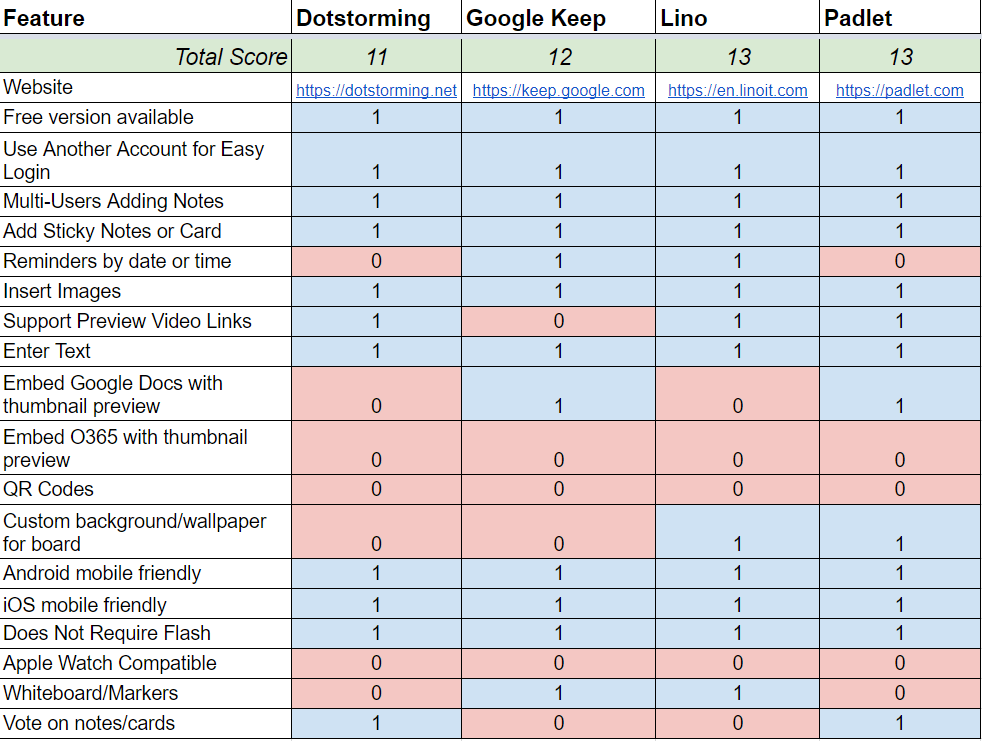Looking for a free, simple assessment tool? Then this digital bulletin board smackdown is for you. First, however, let’s define what a digital bulletin board is. It’s not putting up decorative items on the TV screen in your classroom. It is a way for students to collaborate and learn together by digitally sharing resources, ideas, questions, and final products.
Before we jump into an analysis of some of the various bulletin board tools available, let’s take a moment to revisit why they are so awesome. Here are the two best ways to use them in the classroom:
- Exit Tickets – Exit tickets can be a great way to set up the next day’s learning by allowing the teacher to discover what students learned (or didn’t learn) today.
- Quick Write – With quick writes, you can ask students to respond to an open-ended question or prompt, which, if structured correctly, can move them up the level to Bloom’s Taxonomy in their learning.
“What are the best lesson ideas? How can you use [digital bulletin boards] in the elementary classroom and in high school?” asks Lucie Renard in her blog entry featuring thirty creative ways to use digital bulletin boards in your classroom. Let’s explore a few ways digital bulletin boards (DBBs) make learning possible.
Digital Bulletin Boards in Your Classroom
Digital bulletin boards enable anyone to post:
- Videos
- Images
- Text
- Thumbnails of Google Suites documents
- Links to other documents
What’s more, these DBBs empower students to:
- Summarize key concepts using text, video, or audio
- Collect student work and assignments
- Develop a graffiti wall
- Curate a digital collage
- Make a concept/mind map
- Gather data about a particular phenomena or event
- Share takeaways about a field trip
- Share book talks
- Analyze book characters
Check out a few more ideas online.
Digital Bulletin Board Tools
While there are a baker’s dozen of digital bulletin board tools available, including whiteboard solutions, a few popular digital bulletin board tools have risen to the top of the heap. Those top-of-the-heap tools include:
- Dotstorming: You can read more about this exciting newcomer to the group in this TCEA blog entry.
- Google Keep: Curious to learn more about practical uses of Google Keep? Check the TCEA blog archives.
- Lino: Lino offers a rich feature set, worth investigating further.
- Padlet: This is a TCEA favorite. Find out how we recommend its use for online courses, face-to-face encounters, and more.
Each of these tools was assessed and assigned a score. Read on to see how each of them did.
Criteria for Digital Bulletin Board Selection
Ready to select a digital bulletin board for your classroom project? Here is a breakdown of the top four digital bulletin board criteria according to my preferred list of features. If you have your own preferred features, please add them in the comments section below.
User Management
- Free
- Allows user to use another account to login (e.g. Google, Microsoft, Facebook, Twitter)
- Allows for multi-user collaboration
Features
- Easy to add Post it or index card
- Provides reminders on special days
- Easy to embed images, video, text, thumbnails of digital documents (e.g. Google Docs, Slides)
- Has a chat feature to facilitate conversation and collaboration between users (audio/text)
- QR codes
- Custom background/wallpaper
Technical
- Mobile friendly with Android/iOS version
- Requires Flash
- Apple Watch compatibility
Digital Bulletin Board Smackdown
Ready to see how digital bulletin board favorites stack up? Let’s take a look at this chart. I encourage you to add your own favorites to the Google Sheets version of this smackdown.

Points to Remember
Classroom learning opportunities can be enhanced when students use visual tools like digital bulletin boards. Research suggests that visuals enhance students’ ability to:
- Organize and process information
- Practice higher order thinking skills
- Have their various learning style preferences met
Make the effort to use a digital bulletin board solution in your classroom with your students. It can make a big difference.

